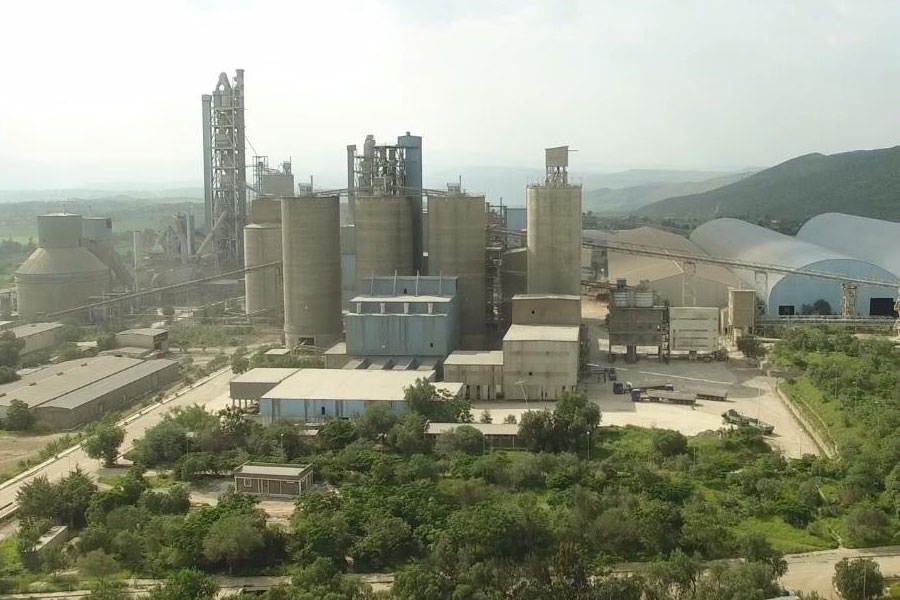
Radar | Apr 24,2023
When Yilikal Atnafu stepped into that bus taking him from the town of Amanuel in Gojam to Addis Abeba nearly 16 years ago, he had just a faint idea of where his life was heading. What he did know was that he had very little money, a past he wanted nothing to do with anymore, and a hometown friend to crash with when he got to the city.
A farmer by tradition, disputes with his family about land had sent him to the capital seeking a better life. Like many in his situation who do not have any formal education or training, he started work at a construction site for the first three months of his stay, earning his living by mixing, carrying and plastering cement.
Since then, Yilikal worked 12 years, loading and unloading 50Kg cement bags from trucks to warehouses and from warehouses to client trucks for 25 cents a quintal or two bags. Nowadays, the price is three Birr a trip, a considerable change from what Yilikal was getting paid at the time.
But years of saving and pooling resources with his wife, who left to work overseas as a domestic worker, enabled them to open a cement retail shop. A welcome relief from the back-breaking work for Yilikal and a more dependable source of income.
Now, his shop lines the street by the Abo Junction on Sierra Leone Street (Debre Zeit Road), one of the many popular destinations for retail cement along with Qera, on Dejazmach Beyene Street, and Megenagna Station. He has been retailing cement for five years, selling up to 3,000ql a month.
"Business was never that profitable," said Yilikal, a father of five. "But I always have food on the table, and I can send my children to school."
But it has been nearly two months since Yilikal's cement shop ran dry. The entire block used to have cement delivered at least twice a week. It now has gone down to as few and far between as once in two weeks.
"It's been months since I paid for my order," Yilikal said, as he pulled out a receipt made out to the Ethiopian Industrial Inputs Development Enterprise, one of the five companies mandated to distribute Portland Pozzolana Cement (PPC) in the country. The bill shows 53,900 Br was paid on June 23, exactly two months ago.
Cement is how he has earned his livelihood for the past 16 years, but he is not so confident anymore. Last month, he closed up his shop, because he had nothing to sell. But even doing that had consequences since the local authorities had forbidden them to close, lest they shut them off for good.
"They want us to stay open regardless," he said. "Why are we open if we have nothing to sell?"
Construction and, by extension, the cement business provides jobs for close to 600,000 people in the city. This was what the government was attempting to insure when it came out with the new decision authorising only six companies to distribute cement in the country at the beginning of this June.
Guna Trading House, Ambasel Trading House, Biftu Adugna Business, Ethiopian Industrial Input Development Enterprise, Wondo Trading and Investment PLC and the Ethiopian Trade Works Corporation were selected to exclusively wholesale Portland Pozzolana Cement (PPC) products, one of the two types of cement produced in the country.
The Ministry of Trade & Industry took this decision hoping to regulate the skyrocketing price of cement and decrease the involvement of illegal traders disrupting the market alongside putting a price ceiling on cement.
But this has caused more problems than it has solved as far as testimonials across the cement chain relay. From retailers and wholesalers to contractors, who have had to reduce and in some cases even stop their projects, the issues reach all the way to the labourers, whose daily bread and butter depend on how many bags of cement they carry to and from the trucks.
Daily labourers lounge outside cement retail shops in Abo Junction, waiting to unload cement deliveries that are few and far between.
The problem seems multifold.
The five companies wholesaling cement may have bitten off more than they can chew. The companies do not have experience in cement distribution, and that affects the smooth transition from delivery to distribution, according to Girma Gelaw, managing director at BamaCon Engineering Plc, a grade-one contractor, qualified to undertake projects worth over 200 million Br.
"This requires a facilitated interaction from having adequate storage to transportation means," he said.
As far as the price regulation intended by the newly enacted decision of the Ministry, the price of cement has increased by up to 80pc, according to Girma.
"We're buying what we need from the black market, because we need to keep our projects going," Girma told Fortune.
BamaCon, in the construction business for 13 years, requires 2,000ql of cement a day to keep all its projects moving at full capacity. But the current supply is below half of the demand, according to Girma.
Structural works, which require the use of bulk Ordinary Portland Cement (OPC), transported in special trucks, is not under the mandate of the wholesalers so the impact there has been cushioned.
This stands in stark contrast to an almost 80pc halt in finishing work that requires PPC bag cement.
"We have to keep going to maintain our clients and employees," said the director of the company, which employs 2,000 workers. "It's a difficult position to be in, as we're also obligated to retain all our employees in this difficult time."
Retaining employees is an obligation that the construction companies are expected to do under the State of Emergency laws. But the daily labourers working to make ends meet at the retail shops across town are not afforded this luxury. Their work lives and dies with the cement that is delivered.
Yigerem Yehuala, who works near the retail shops around Abo Junction, has been having a hard time because of this. He used to make close to 3,000 Br a month in this line of work, but with the delivery of cement getting lower and lower, these days he is splitting 400ql of cement worth 2,400 Br with five others.
"We're getting really strapped about what to do," he said, sitting outside one of the empty warehouses, his work clothes on, tattered and cement-specked baggy pants and shirt, in the unlikely case a truck comes by. "We just want to be able to work and support our families."
But even construction sites, their other option for work, are also not hiring as they too have been impacted by the shortages.
In Qera, where retailers say they normally have an overflow of cement during this time of the month, the shops are now instead lined with out-of-work labourers, sitting on stones. Everyone is eagerly awaiting cement.
A notice on one of the doors of the warehouse by the wereda'strade bureau lists selling prices of cement from the 12 factories in the country. It warns that selling cement beyond these prices will entail grave consequences.
The retailers are expected to sell their cement at a 20 Br profit margin from the wholesalers they are procuring it from. Currently, prices range from 260 Br to 400 Br a quintal for Zhongshun Cement to Messebo Cement, respectively.
"We're not able to make a profit from the prices they've given us," said a retailer, who chose to remain anonymous. "A lot of it seems arbitrary and inconsiderate of the costs we have to cover."
But even so, there's still no cement to be sold at whatever instructed price.
"The past month has been unlike any other we've seen," he said. "We've paid our hard-earned money to get the cement and have been waiting for months," he said.
Sales accounts from the Ethiopian Trade Works Corporation also corroborate this trend.
The Corporation, since it started distributing cement, has received payment for over 800,000ql of cement but has only been able to distribute close to 60pc, according to the Corporation's communications director, Etenesh Gedefa.
The Corporation, which distributes half of the city's cement needs, attributes this to the shortage at Derba, Dangote and Mugher cement factories, where it sourced cement.
An assessment done by the Ministry of Trade & Industry reveals a backlog of up to a year and seven months of paid-up cement orders across the 12 factories in the country amounting to 12 million tonnes of cement.
But cement delivery backlog is a normal part of any factory's method of operation, according to Mesfin Abera, sales director at Dangote Cement Factory.
"We normally have a backlog of 200,000tn," he said. "This is standard procedure."
The factory had produced 185,000tn of cement last July and was working close to full capacity, according to the director. It is expected to allot half of its production, like all the other manufacturers in the country, to one of the five companies. But limitations from these companies have not allowed them to take more than 35pc.
"These limitations could involve their infrastructure, transport or facilities," said Mesfin. "They also don't have the know-how of navigating the business."
These problems come alongside a far more serious claim, corruption, according to players in the industry. Retailers and contractors across town are bemoaning the rampant nepotism and bribe system that has exploded since the five companies were selected to exclusively wholesale in June.
They claim cement is being procured through a two-way payment system - one through an official bank account for the company and another for a designated benefactor that assures delivery. What has ultimately robbed the six Birr a quintal fee from the daily labourer is going toward lining the pockets of a few who are raking in millions every day.
The claim is currently under serious investigation by the Ministry, according to Eshete Asfaw, state minister for Trade & Industry. The investigation is expected to follow the route of distribution; how much cement was produced by which factory; which bodies have purchased this cement; where and when the wholesalers sold the products among others.
"We also have reason to believe that there are individuals hoarding the products in the city," Eshete said. "This is alongside other issues that we're investigating."
The team has been deployed and is closely following the case leading from the first day of implementation in June. The results, according to the state minister, will entail changes in operation. But the Ministry believes that the main issue still lies in the gap between demand and supply.
The capacity of the operational cement factories in the country is 15.1 million tonnes a year, while construction projects in the country require 13 million tonnes annually.
"The actual achieved production of the factories, however, is 8.4 million tonnes of cement," he said. "So the factories aren't working as effectively as they should."
A shortage of cement from the factories is a shared problem among wholesalers. This is among other problems like transportation, contraband and electricity outages, according to Roman Fekade, general manager at Adinas Construction Material Supply, which is sourcing OPC from Derba and Dangote cement factories.
"We're currently supplying only two to three percent of our clients' needs," she said. "We would like to support the government in alleviating this problem, but we're not sure how."
The decision of the government to intervene in regulation brings with it the overlooked factor that this will create a monopoly to some extent, according to Tekie Alemu (PhD), assistant professor of economics at Addis Abeba University.
This problem can only be solved through a healthy competitive market not through intrusive regulation, according to him.
"The factories should be given a mandate on how to implement their own marketing strategies for their products," he said. "At the end of the day, the goal is going to be to try and sell as much of their product as possible."
The work of the government lies in studying the demand and supply and pinpointing problems there, according to the expert.
Most retailers across town echo this sentiment.
They want to be able to source the cement from outside the five companies. Others believe that at least until the mandated companies mix well into the system, other wholesalers should operate alongside them. Yet others are eagerly awaiting their refunds in order to leave this business and its headaches behind.
PUBLISHED ON
Aug 22,2020 [ VOL
21 , NO
1060]

Radar | Apr 24,2023

Radar | Jun 04,2022

Fortune News | May 16,2020

Radar | Aug 20,2024

Viewpoints | Mar 13,2021

Fortune News | Dec 25,2021

Radar | Jun 25,2022

Radar | Apr 09,2022

Radar | Jan 26,2019

Fortune News | Mar 27,2021

Dec 22 , 2024 . By TIZITA SHEWAFERAW
Charged with transforming colossal state-owned enterprises into modern and competitiv...

Aug 18 , 2024 . By AKSAH ITALO
Although predictable Yonas Zerihun's job in the ride-hailing service is not immune to...

Jul 28 , 2024 . By TIZITA SHEWAFERAW
Unhabitual, perhaps too many, Samuel Gebreyohannes, 38, used to occasionally enjoy a couple of beers at breakfast. However, he recently swit...

Jul 13 , 2024 . By AKSAH ITALO
Investors who rely on tractors, trucks, and field vehicles for commuting, transporting commodities, and f...

Sep 13 , 2025
At its launch in Nairobi two years ago, the Africa Climate Summit was billed as the f...

Sep 6 , 2025
The dawn of a new year is more than a simple turning of the calendar. It is a moment...

Aug 30 , 2025
For Germans, Otto von Bismarck is first remembered as the architect of a unified nati...

Aug 23 , 2025
Banks have a new obsession. After decades chasing deposits and, more recently, digita...